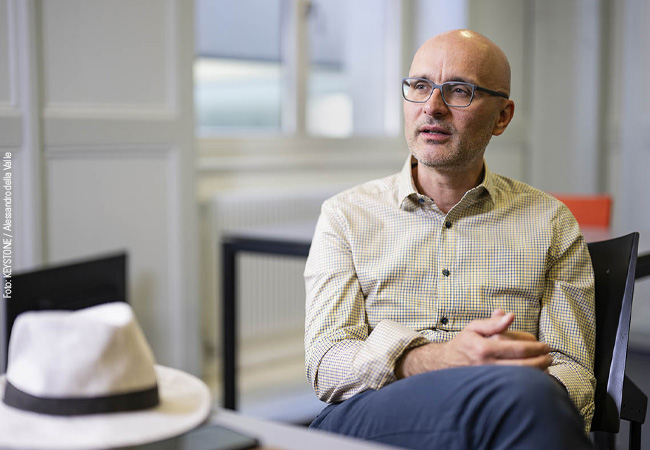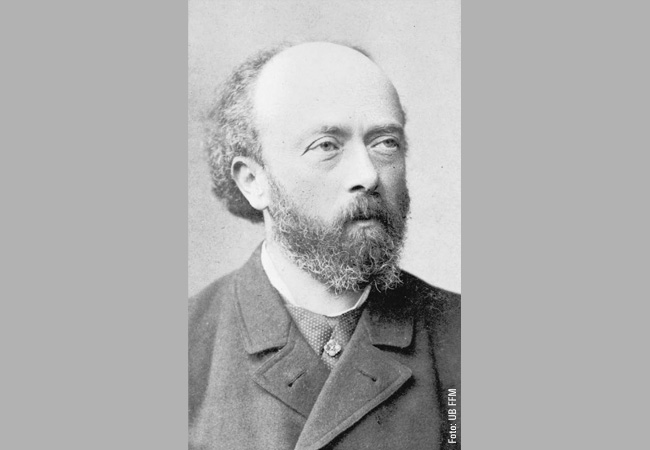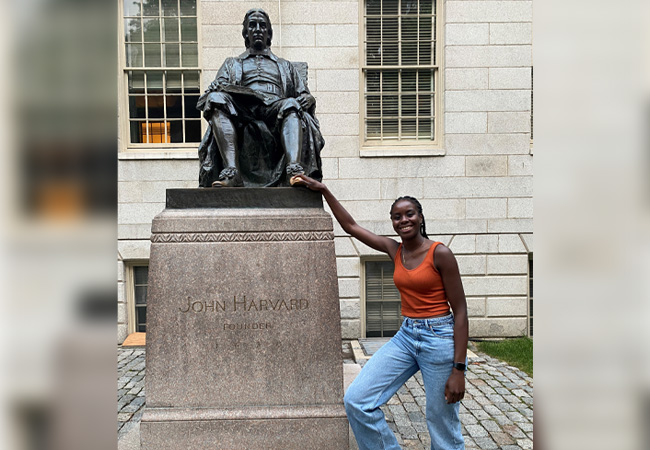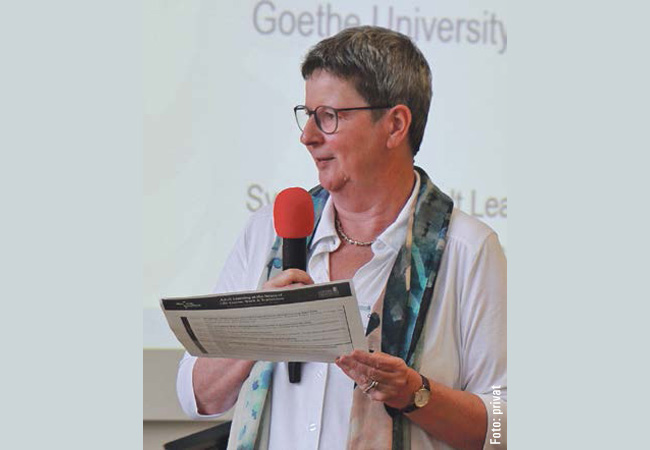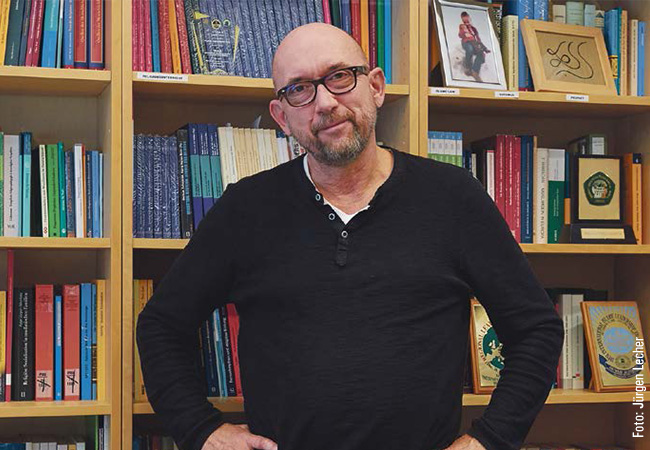
Harry Behr spent around two and a half years in Indonesia in his youth, during which time a master once told him: “I see a teacher in you.” All of Behr’s insisting that he had no interest in becoming a teacher did not serve to dissuade the sage. When Behr told him he wanted to study agricultural biology in Germany, he replied: “That may be so, but what I foresee for you is that first you will study agricultural biology – and then you will become a teacher.” The rest, as they say, is history: Behr, who now teaches Islamic Religious Education and Didactics of Islamic Religious Education at Goethe University Frankfurt’s Faculty of Educational Sciences, came to know and love Islam in Indonesia. In 1980, at age 17, he chose to convert there by reciting the Islamic creed in front of witnesses in the mosque. He was given the epithet Harun, which was to become a kind of cause for him: In local lore, it describes someone who speaks up for a mute/speechless person and thus builds a bridge to the world. Upon returning to Germany, Harry Harun Behr would indeed also act as a bridge builder to the Islamic world.
Classrooms instead of petri dishes
While he did complete his degree in agricultural biology, at the same time, he also taught children and young people on a voluntary basis, both in his own mosque community and for other Muslim groups. “It was during these years that my interest switched from soil bacteria in petri dishes to children in classrooms, if you will,” Behr concludes. It was a logical next step for him to go on to complete a teaching degree (primary/middle school).
He actually worked as a teacher for several years before he began training educators to teach Muslim children that to which they are entitled according to Article 7 of the German Basic Law: schooling in their religion.
In talking about his work as a trainer of Islamic religious teachers, it is important for Behr to emphasize that he acts independently of Islamic associations like DITIB or Ahmadiyya Muslim Jamaat. “After all, I am not a member of any of these religious communities,” he highlights, adding that herein lies a significant difference to Christian denominations: To train Catholic religious teachers, for example, he would need a teaching license from the Catholic Church, and such a license is only issued to church members, i.e. Christians who have been baptized as Catholics.
Compared to its Christian counterpart, Muslim religious education in Hesse is in a state of complete disarray: “Islamic religious education [Islamischer Religionsunterricht, IRU] is taught in cooperation with the Turkish-Islamic DITIB and Ahmadiyya Muslim Jamaat.” However, following the state of Hesse’s temporary suspension of its cooperation with DITIB in 2016 following the attempted coup against Turkish President Erdoğan, by definition, Islamic religious education was no longer possible, which is why Hesse decided to offer the non-denominational subject of Islamic education [Islamunterricht, ISU] as a substitute.
Unfortunate hybrid structure
“This situation, which the political establishment brought about with the unfortunate hybrid structure IRU/ISU, really annoys me. I’m livid,” Behr says. School principals seeking clear statements from politicians were left massively unsettled, as were students, who suffered from the resulting lack of trainee teacher places. During his time in Bavaria, Behr gave training courses on the topic of IRU/ISU for school administrators and school district heads. “The result: Today ‘Islamic teaching’ in Bavaria works without any problems at all,” he says. However, after being appointed to Goethe University in 2014, the Hessian ministry of education and cultural affairs told him it did not attach great importance to his school policy activities: “In Wiesbaden, I was told to stay on campus, conduct my research and not get involved in the school, i.e. the ministry’s work.”
Yet, this is precisely what Behr now wants to do in the five years until his retirement: to continue his research at the interface of migration, religion, gender, education and youth, focusing on one particular issue especially: “It’s not so much a matter of Germany having a problem with the radicalization of students, but rather of teachers.” Under certain circumstances, even those teachers who consider themselves tolerant and open-minded tend to ascribe specific characteristics to their students based solely on their name or appearance.
“This happens, for example, when a teacher automatically asks a student called Ayse how her family observes Ramadan,” Behr explains, even though the mere fact of having a Turkish-sounding first name says nothing about one’s religious practice. “I try to turn this kind of behavior from prospective teachers into good leadership skills.” The aspiring teachers should learn to ask the question “Where are you from?” in such a way that it conveys honest interest instead of skepticism and arrogance. While this endeavor certainly is one that challenges his teaching skills, Behr in fact enjoys it: “I learn just as much every semester as my students.”
Stefanie Hense


